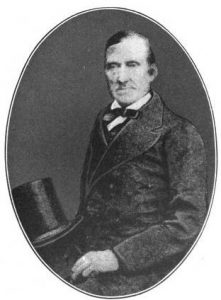After returning from his trip to England, funded by Ralph Waldo Emerson, Amos Bronson Alcott had a dream for a transcendental utopia. Alcott brought Charles Lane, his son, and Henry Gardiner Wright back from England with him in September 1842 to help make this dream a reality.

Lane and Alcott wished to build heaven on earth. Charles Lane had strict ideas about how life is best lived. He believed people who joined this utopian community should forgo sex, affection, and appetizing food.
In addition to Lane’s commandments, their community would use no slave labor and no money. Alcott understood eating meat as a form of murder. Likewise, consuming animal’s milk, eggs, and labor was a type of theft. In their utopia, there would be no animal products, and they would rely on animal labor as little as possible.
The Lane and Bronson approved diet consisted mostly of apples and bread. Alcott explained these extreme measures, saying that,
“the evils of life are not so much social or political, as personal; and a personal reform only can eradicate them.”
The Fruitlands community began in the Alcott’s Hosmer Cottage in Concord. Together, the Alcotts, Lanes, and Wright began adhering to a vegan diet and other heavenly restrictions. Wright left during the first winter as he was unable or unwilling to adhere to Lane’s celibacy rule.
At Hosmer Cottage, in January 1843, Alcott was arrested for refusing to pay his annual poll tax. When he was brought to the jailhouse, the jailer was nowhere to be found. Alcott waited two hours while the constable looked for the jailer. Samuel Hoar, a local attorney, heard Alcott was being arrested. Hoar paid Alcott’s poll tax, though Alcott had wished to be imprisoned. Charles Lane wrote about this incident in The Liberator in which he painted Alcott as a hero against state slavery. This incident inspired Thoreau’s own imprisonment after neglecting his poll tax which led to his famous essay “Civil Disobedience.”
Henry David Thoreau often visited Hosmer Cottage to talk with Bronson Alcott and Charles Lane. Lane and Thoreau developed respect for one another, although Lane could not condone Thoreau’s deep, almost sensual love for nature. Lane described it as the most
“subtle and dangerous of sins; a refined idolatry, much more to be dreaded than gross wickedness, because the gross sinner would be alarmed by the depth of his degradation, and come up from it in terror, but the unhappy idolaters of nature were deceived by the refined quality of their sin…”
When Ralph Waldo Emerson and Henry David Thoreau were asked to join Alcott and Lane’s utopia, they both declined.

